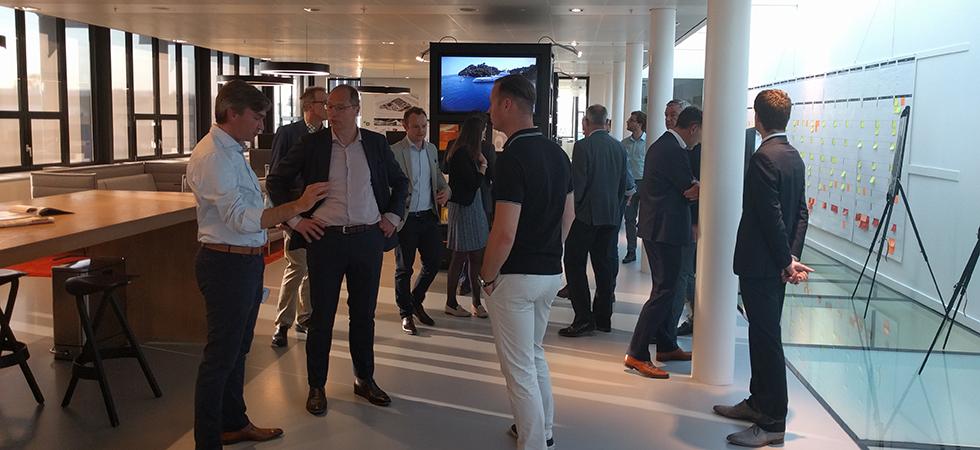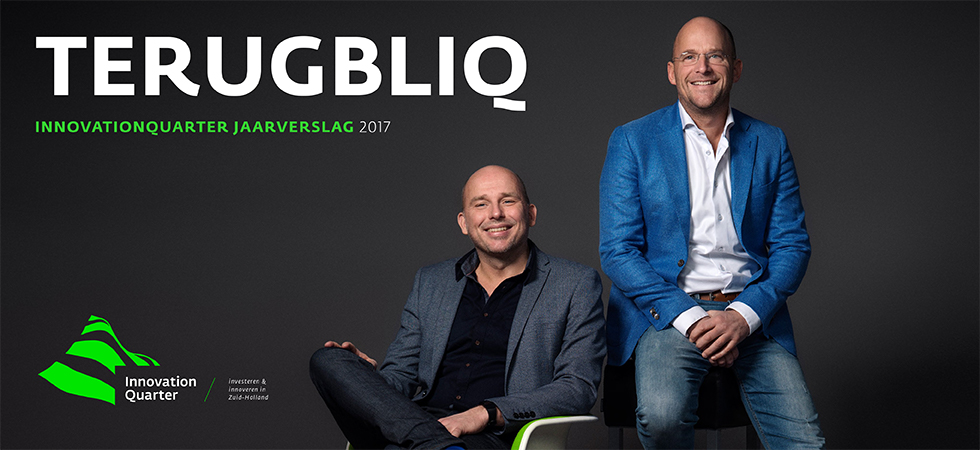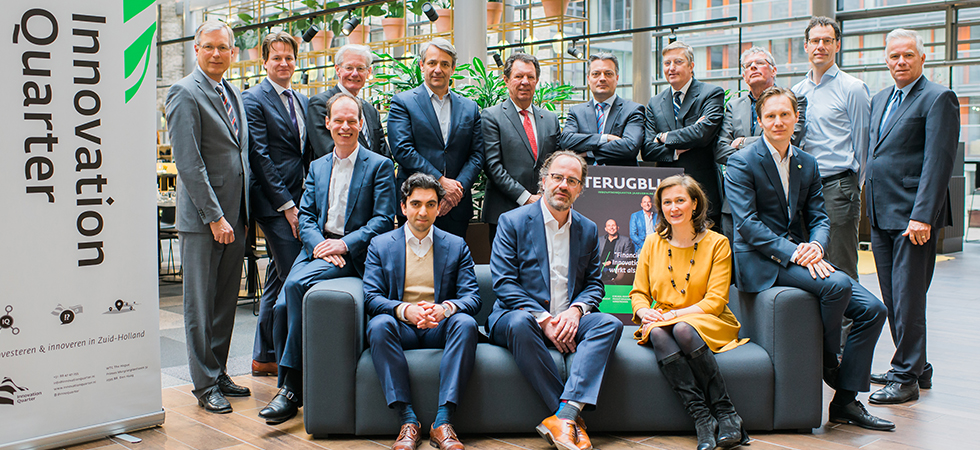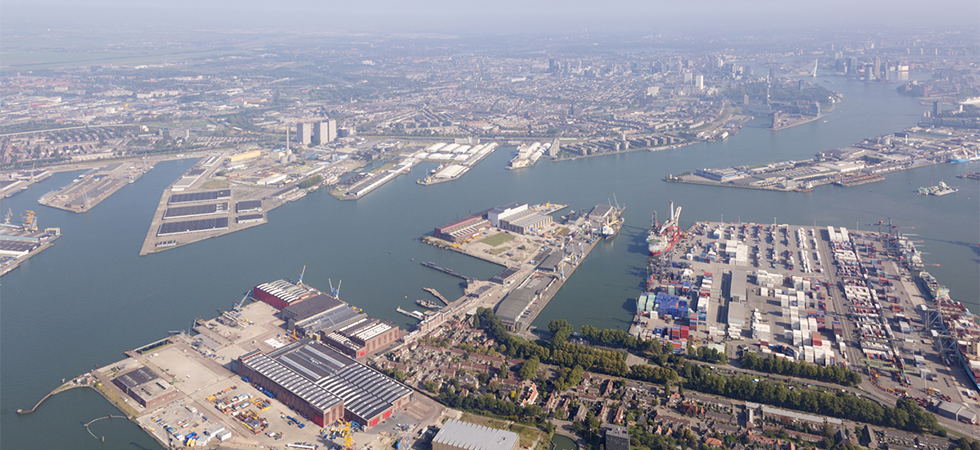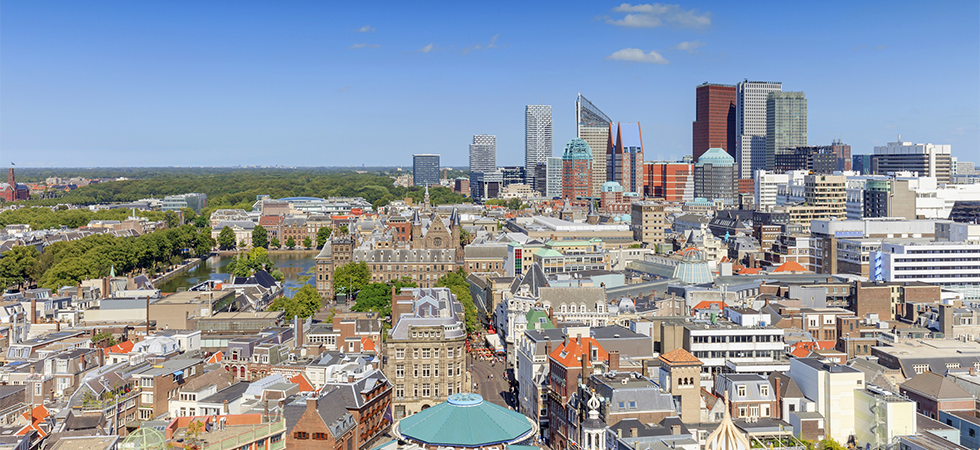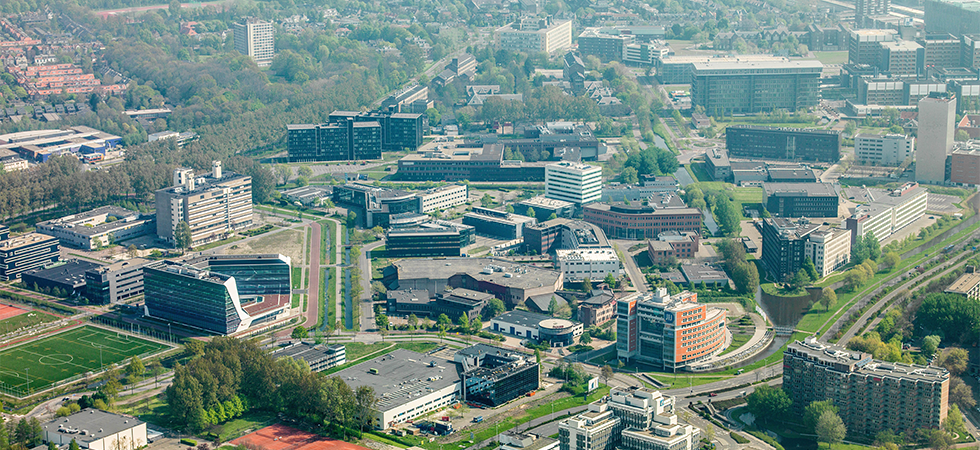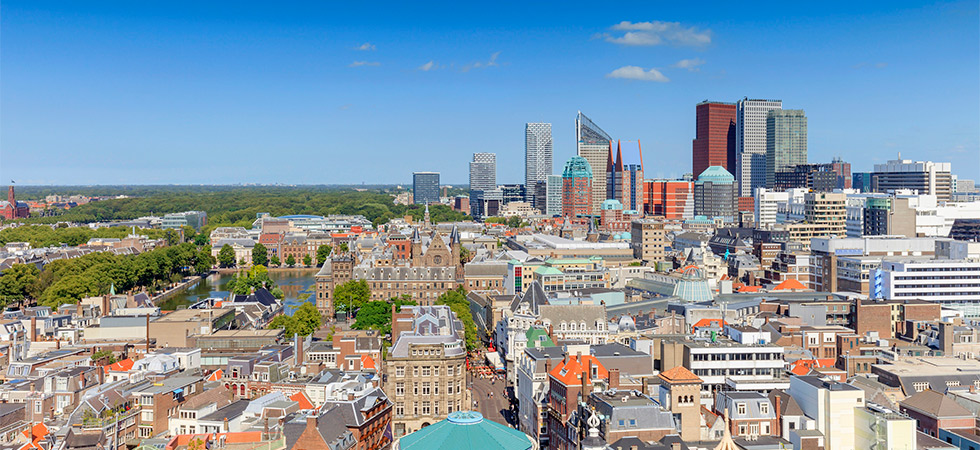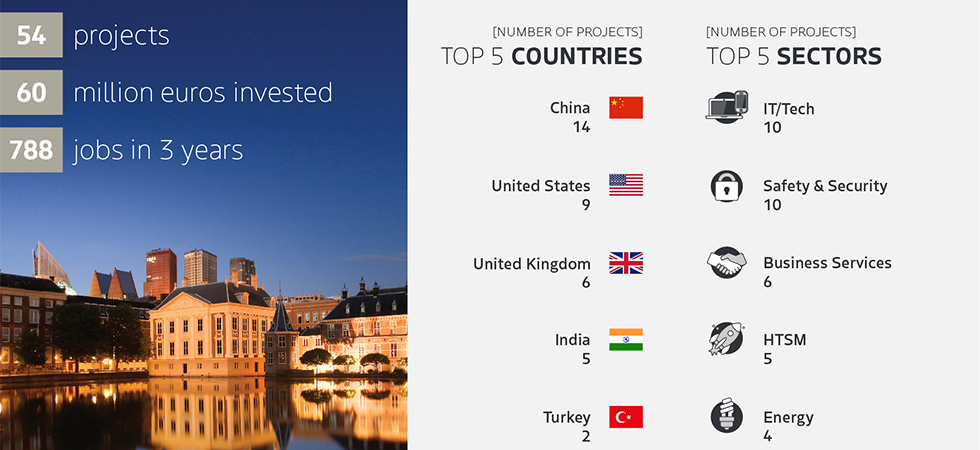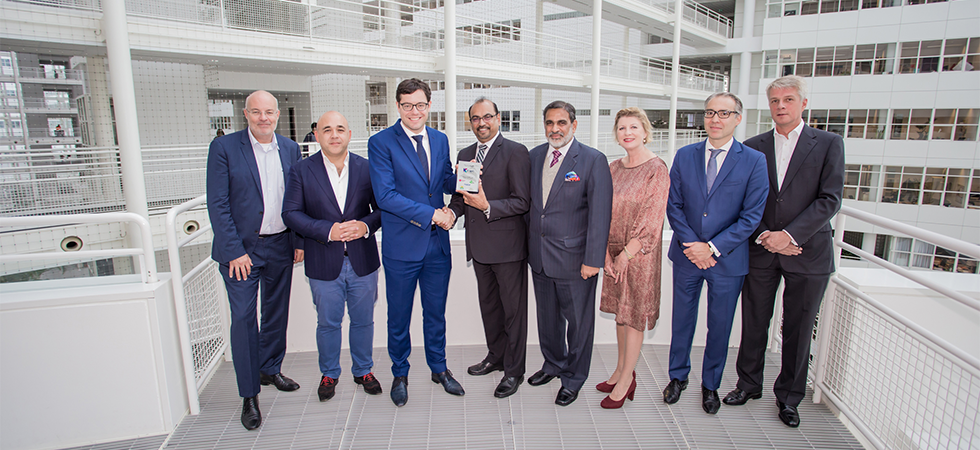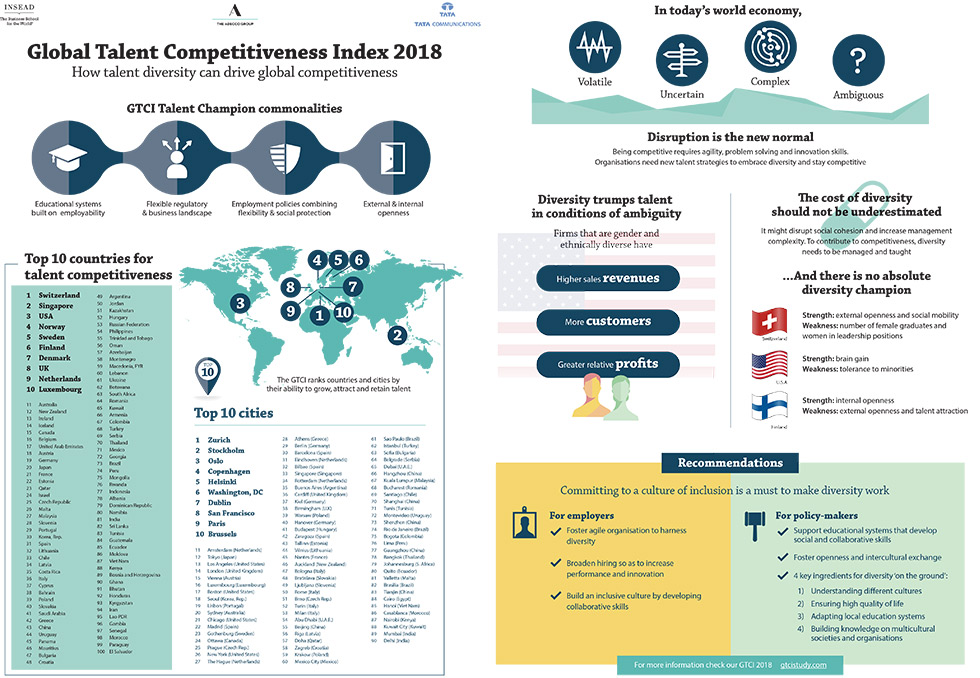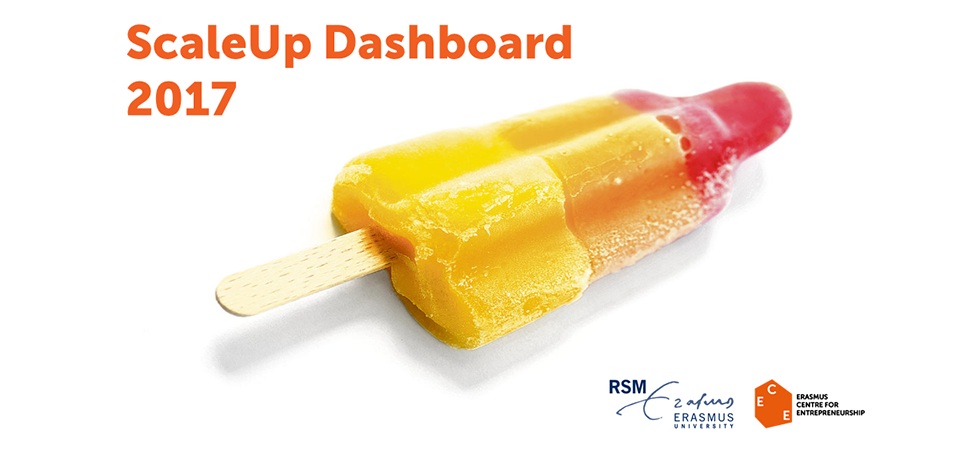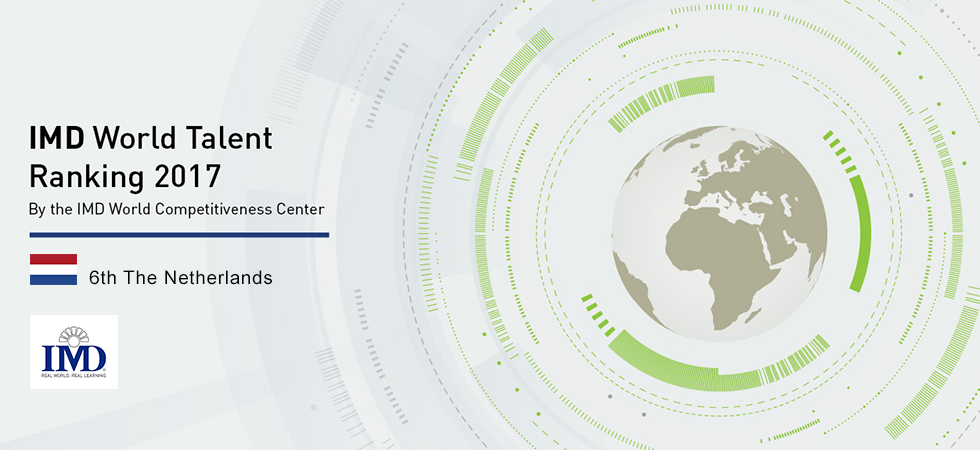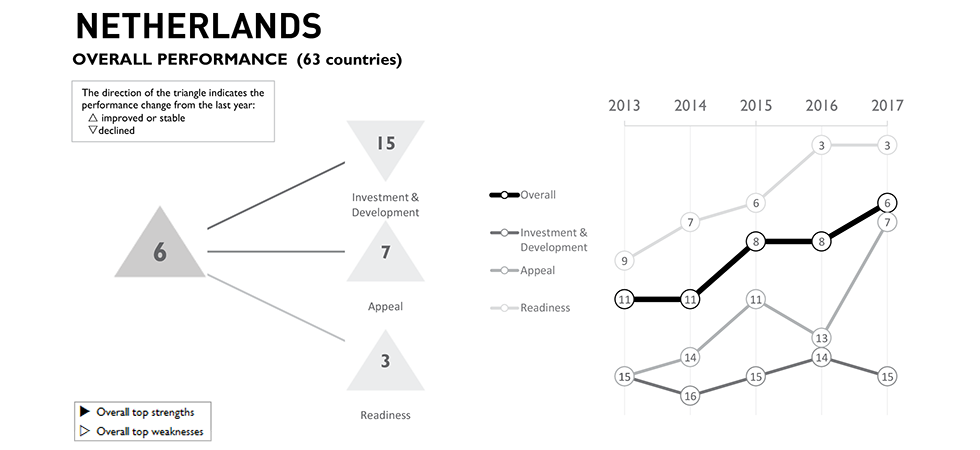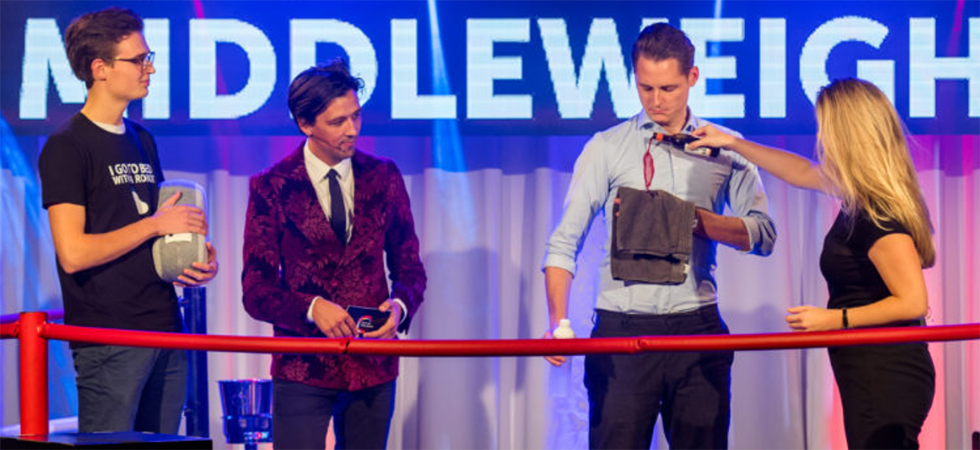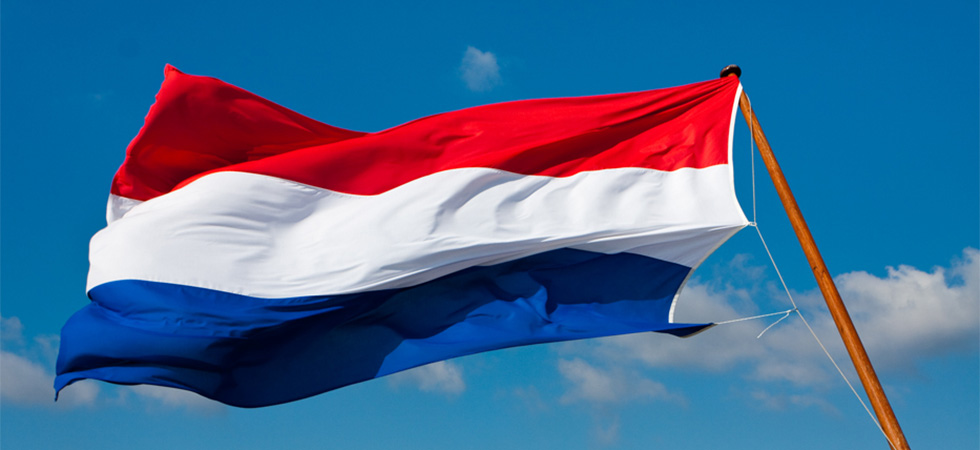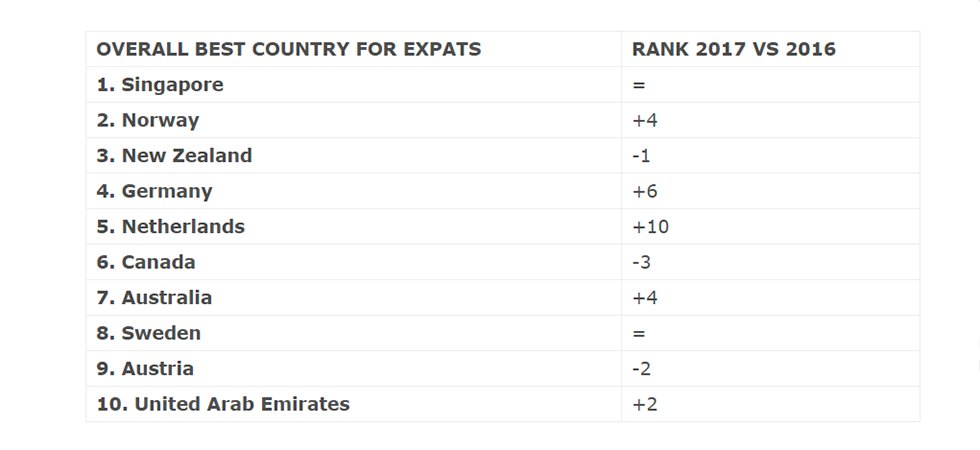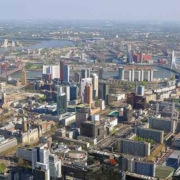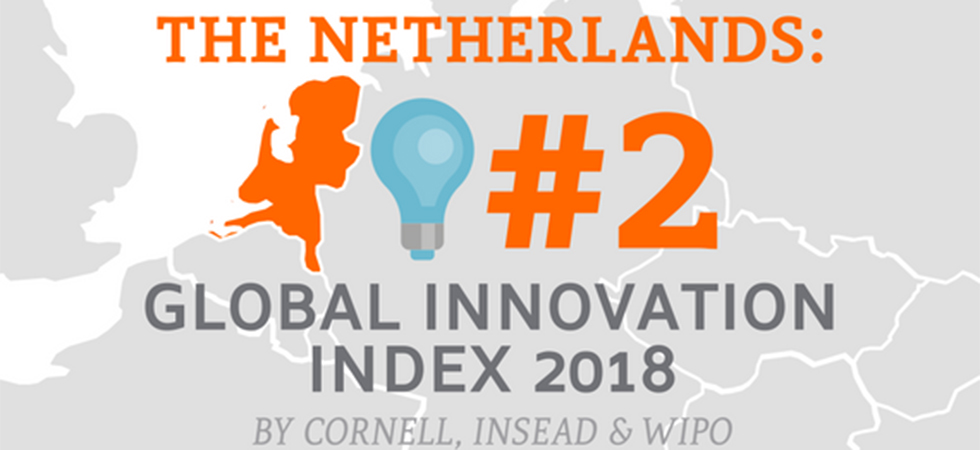
Nederland 2e plaats innovatiefste landen ter wereld
The Netherlands has climbed one spot to the no. 2 ranking in the 2018 Global Innovation Index (GII). Switzerland retained its number-one spot and rounding out the top ten are: Sweden, the United Kingdom, Singapore, United States of America, Finland, Denmark, Germany and Ireland.
Each year, the GII surveys some 130 economies using dozens of metrics that provide a high-level look at innovative activity. Its 81 indicators explore political environment, education, infrastructure, and business sophistication. The GII is co-authored by the World Intellectual Property Organization (WIPO), Cornell University and French graduate business school INSEAD.
Holland’s triple helix approach scores strongly
The GII attributes Holland’s second-place ranking to its “strong, interlinked business sector that collaborates well with universities.” It also emphasized the fact that Holland’s business sector is internationalized via IP licensing exports.
In addition to ranking No. 2 overall on the GII, the Netherlands ranks first in the following categories: logistics performance, cluster development, knowledge and technology outputs, and creative outputs.
Eleven of the top 20 ranking countries are from Europe. In 2018, China broke into the top-20 ranking for the first time while the USA dropped back two places to no. 6.
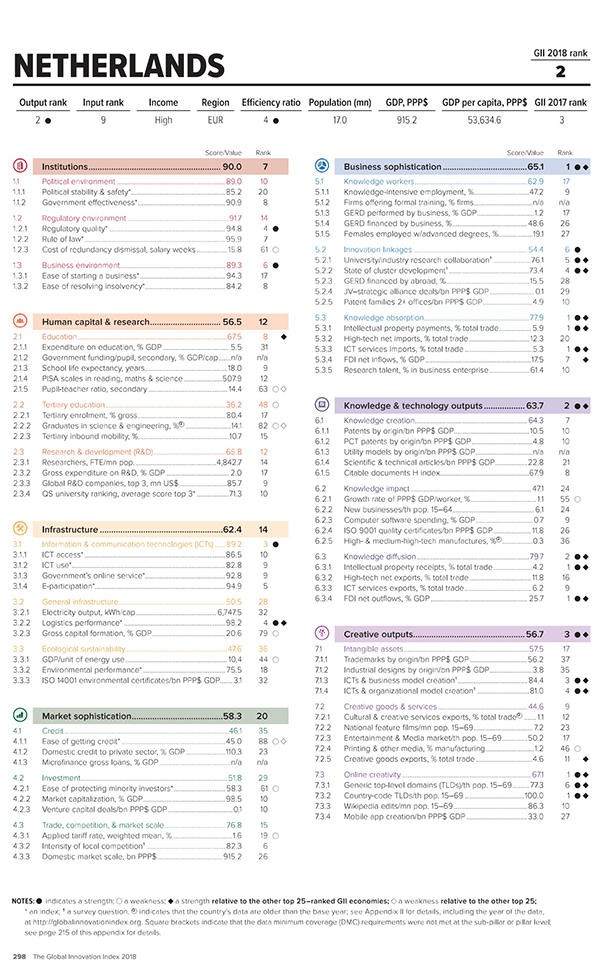
The importance of climate-friendly innovation
The theme of the 2018 GII edition is “Energizing the World with Innovation,” looking at the need for expanded innovative work in climate-friendly green technology amid rising energy demands worldwide.
“Innovation is clearly necessary to address the energy/environment equation, but let us keep in mind that such innovation cannot be only technological,” said Bruno Lanvin, INSEAD Executive Director for Global Indices. “New social, economic and business models are required, including through efforts to promote smart cities, mobility solutions based on shared vehicles – and a global citizenry with better information on the impacts of various energy policies.”
About the GII
Published annually since 2007, the GII is now a leading benchmarking tool for business executives, policy makers and others seeking insight into the state of innovation around the world. Policymakers, business leaders and other stakeholders use the GII to evaluate progress on a continual basis.
Source: WIPO



